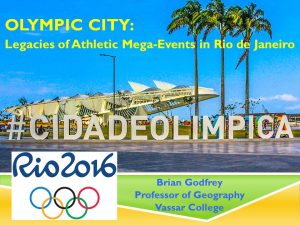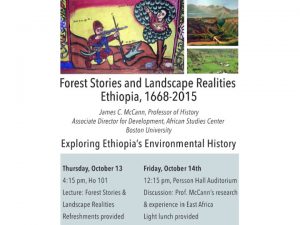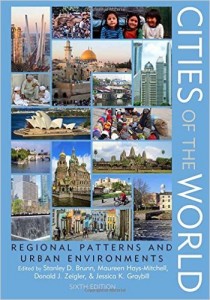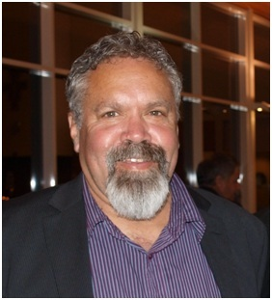Dara Seidl ’10, was awarded the Prize for the Outstanding Master’s Thesis in Cartography, Geodesy and Geo-Information awarded by Pan-American Institute of Geography and History in 2015. This is the first time that the prize has been awarded. The selection was made by a jury of experts who evaluated 14 international submissions. Dara’s 2014 thesis is titled “Striking the Balance: Privacy and Spatial Pattern Preservation in Masked GPS.” (Details of the award here.)
Dara says, “My data source had a huge impact on my thesis experience. I applied for access to GPS data collected in household travel surveys that was later hosted and administrated by the National Renewable Energies Laboratory (NREL) in a secured data center. This allowed me to work with really high-resolution and high-frequency trajectory data (and lots of it!) that I wouldn’t otherwise have had access to. I definitely would recommend this as a data source. I was able to remotely log in to their data center and work with their GIS software (QGIS, PostGIS, ArcGIS, R). Of course, for privacy reasons, any results had to be aggregated and go through an approval process to be extracted from their network. The application process for working with these data was helpful in that it forced me to organize the details of my procedure far ahead of time. On the other hand, it was a lesson that not everything in research will go as planned, even if the plan seems solid. For instance, I had to reduce my sample size due to frequent timeouts in the server connection, and at one point, my data folder inexplicably disappeared from their server. These were good reminders for me to adapt to changes when writing the thesis and not to stress too much overall.”
A link to the published version is here.
Dara is still focused on geoprivacy in her doctoral research, and is now looking at human behavior related to location masking.
And, she adds, she’s still thinking fondly of Colgate!






